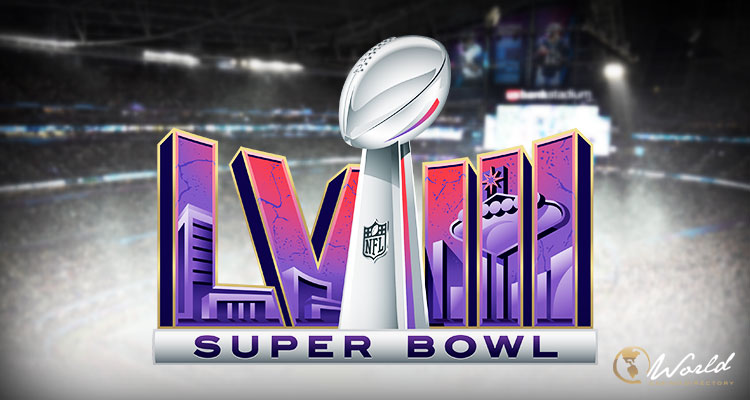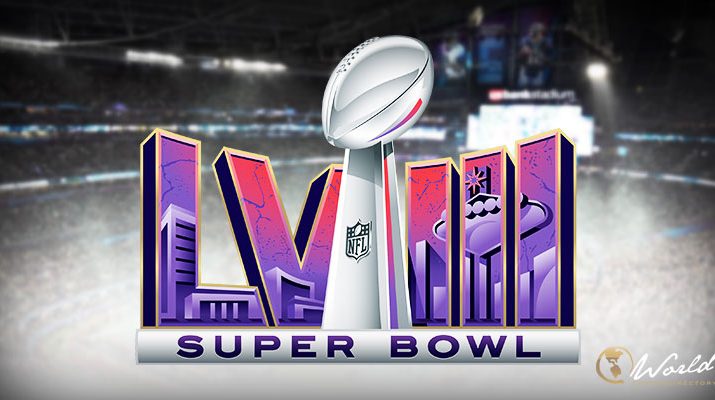
Super Bowl LVIII, which was one of the events that marked the whole of February, also saw a remarkable increase in online wagering. To put it simply, dozen of million of Americans bet their cash on the final game of the entire event, which was the San Francisco 49ers vs. the Kansas City Chiefs.
Non-legal wagers:
Although supporters of lifting the federal suspension on sports wagering claimed that it’d “critically weaken” non-legal gambling platforms across the US, nearly 2 in 3 bets on the aforementioned event weren’t legal, based on 1 analysis shared with The Guardian.
A survey by Yield Sec, a gambling analysis firm, discovered that Americans wagered $5.37 billion on the 2024 championship game. However, only $1.4 billion was legitimately wagered. It is calculated that 350.5 million wagers were placed by the citizens of the United States on the 2024 Super Bowl, from which 228.2 million were placed using non-legal platforms.
According to the aforementioned analysis, the black market didn’t lose any footing in the period between the Super Bowl of the previous year and the current year. However, legalized platforms disagree with these discoveries.
Furthermore, the American Gaming Association (AGA), which is the representative of the aforementioned legalized industry, emphasizes its own survey that in 2023 revealed that exactly 77% of online sports wagers were within legal limits. Still, scholars have doubts about it.
Although measuring non-legal gambling is extremely hard, it undeniably influenced online sports wagering before the Supreme Court officially legalized the said market during 2018. Additionally, if officially regulated platforms have captured approximately a third of that identical market in only 6 years, as the aforementioned analysis by Yield Sec suggests, “that would be wonderful,” an associate professor at Oklahoma State University, John Holden, who formally studies legalization of sports wagering said. However, this would still mean that the non-legal market makes up for the remaining two-thirds.
Dangers of the black market:
Regardless of its size, legalized operators agree on the dangers of the black market, since the main characteristic of said market is that it preys on “Americans, undermines problem gambling efforts, and steals tax dollars from states and local governments,” according to the AGA.
Non-regulated operators provide wagers on Little League baseball games, Holden pointed out, and give $100.000 lines to individuals who don’t earn that much throughout the entire year. In this regard, the director of the Center for Gambling Studies at Rutgers University, Lia Nower, commented: “It’s much easier for people who are underage to gamble on offshore sites.”
As for legalized operators, they face many demands, from underage gambling oversight to anti-money laundering regulations, Nower added. But offshore operators “don’t have to adhere to any of these things, because they’re not legal to begin with.”
In particular, the offshore market stays strong, AGA admitted in a statement. However, “the growth of legal sports betting over the last five years has been driven by the migration of millions of American adults into the protections of the legal, regulated marketplace.”
Halting the non-legal market “won’t going to happen overnight,” according to the lobby group. “Our industry [is] in this fight for the long haul and leaving no stone upturned when it comes to combating [the] illegal market.”
But there’s also the question of whether the black market may even be stopped. Additionally, legalized operators “take the position that legalizing online gambling significantly decreases the use of offshore sites,” Nower said. “I’m not sure I buy that.”
Relatedly, the founder of the pro-reform Campaign for Fairer Gambling, Derek Webb, who ordered the analysis of the Yield Sec, highlighted the official legalization of cannabis. After over a decade since the recreational marijuana was officially legalized by the 1st states, the non-legal market is still thriving. In this regard, Webb commented that official legalization of the sports wagering market would have some other outcomes.
Difficulties in distinguishing an illegal from a legal wagering platform:
Although insiders from the industry make a clear difference when it comes to recognizing non-legal from legal gambling, those utilizing the platforms may have difficulty doing so. Non regulated apps and sites “look as good, if not better, than the FanDuels and DraftKings of this world,” Holden commented. Their characteristics are contemporary, ubiquitous and sophisticated style.
In this regard, Webb claimed according to The Guardian: “It’s easier for me to get steered towards the illegals.”
Speaking on the subject, executive director of the National Council on Problem Gambling (NCPG), Keith Whyte, commented: “Many of the kids we talk to don’t distinguish between the legal and the illegal market. They don’t even know. It’s absolutely crazy to expect any consumer, much less a young consumer, to figure out these incredibly fine distinctions.”
Stopping the non-legal market demands action from each stakeholder, the AGA commented that government-owned agencies need to challenge “bad actors,” media and tech firms, need to kick them of from their respective platforms, and payment companies need to block their transactions. However, legal gambling companies may take measures themselves to exhaust the aforementioned black market, Holden commented, by constructing really good platforms, with odds that are so competitively priced that punters don’t think about non-legal options.
On that note, Holden commented: “If they don’t, there is the risk that bettors are being trained to bet in the regulated market, and then will turn to unregulated.”
Although lobbyists for legal operators argue that the legalized market relentlessly provides better security for punters compared to its non-legal shadow, “that’s actually not our experience,” commented Whyte of the NCPG. “Some states and some companies provide better responsible gambling protections than the illegal market. But other states and other companies don’t.”
The world of online casinos in India is rapidly growing, offering players a convenient and exciting way to enjoy casino games from the comfort of their homes. With the increasing popularity of online gaming platforms, Indian players now have access to a wide range of online casino options that cater to various preferences, from traditional games like blackjack and roulette to slots and live dealer experiences.
In this guide, we'll explore what Indian online casinos are, how to choose a trusted platform, and some of the best casino games available for Indian players.
Indian online casinos provide a thrilling and convenient way for players to enjoy casino games, poker, and sports betting. By choosing a reputable platform that offers a wide variety of games, secure payment methods, and excellent customer support, players can have a safe and enjoyable gambling experience.
Remember to always gamble responsibly and choose casinos that are licensed and secure, offering fair gameplay and enticing bonuses!






